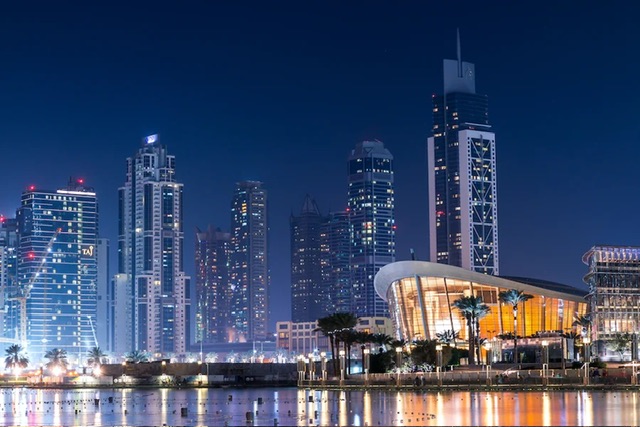With Chinese help, the UAE is taking on the nuclear challenge in the Middle East
Over the weekend, the UAE signed agreements with Chinese nuclear companies, boosting partnerships after the South Koreans built a plant in Barakah. Last week, Turkey’s Akkuyu Nuclear Power Plant was inaugurated at a ceremony that saw the participation of Erdogan and Putin via videolink. Saudi Arabia’s nuclear ambitions rival those of its regional allies.
Abu Dhabi (AsiaNews) – The nuclear race continues in the Middle East, a region historically associated with fossil fuels. The United Arab Emirates (UAE) is the latest country to join the nuclear club with a series of agreements signed with Chinese entities over the weekend.
Amid fears of a regional arms race, Saudi nuclear plans are also on track while Turkey inaugurated its first nuclear reactor built and financed by Russia, another sign of the increasingly close relationship between NATO member Turkey and Russia, in the crosshairs of much of the international community after its invasion of Ukraine.
In the UAE, the Emirates Nuclear Energy Corporation (ENEC) signed three agreements with Chinese entities in order to boost low-carbon nuclear energy.
The Arab country, which will host the COP28 climate summit this year, wants to obtain 6 per cent of its energy from nuclear power, and China is the privileged partner it picked for its energy transition plan, another sign of China’s growing influence in the Middle East.
The three memorandums of understanding (MoU) cover nuclear energy cooperation, high-temperature gas-cooled reactors, and nuclear fuel supply and investment, the ENEC said.
The Chinese entities involved are the China Nuclear Power Operations Research Institute, the China National Nuclear Corporation Overseas, and the China Nuclear Energy Industry Corporation.
The MoUs mark a further expansion in the strategic partnership between the two countries.
Meanwhile, the UAE is already building a multi-unit operating nuclear power plant, the first in the Arab world, with the Korea Electric Power Corp (KEPCO) of South Korea.
When completed, the Barakah plant will have four reactors with 5,600 megawatts (MW) of total capacity – equivalent to about 25 per cent of the UAE’s peak demand.
Last week Turkey inaugurated the Akkuyu Nuclear Power Plant, built in partnership with Russia. The inauguration ceremony saw Russian President Vladimir Putin in videolink with his Turkish counterpart Recep Tayyp Erdoğan, who is up for re-election next Sunday.
The US$ 20 billion plant was built by Rosatom, a Russian state conglomerate, overlooking the Mediterranean, not far from Cyprus.
It is expected to provide power to 15 million people and supply about 10 per cent of Turkey’s electricity. The first reactor is expected to be up and running by the summer.
The plant is located in a fifth-degree seismic zone, a factor that raises concerns among experts, especially after the 6 February earthquake on the border with Syria; however, for the plant builders, it is in the safest zone of Turkey.
“We will hopefully take action for our second and third nuclear power stations in the shortest possible time,” said Turkish President Erdogan during the inauguration ceremony. For Putin the deal “brings both mutual economic benefits”.
For its part, Saud Arabia is vying for supremacy in the Gulf region against the UAE, from energy and finance to technology, the entertainment industry and even football (soccer).
Despite their alliance, the two countries are also rivals in the nuclear domain with the Saudis in a hurry to fulfil their nuclear ambitions in spite of concerns over the dangers of a regional arms race (including nuclear weapons).
In late 2020, Saudi Arabia, with China’s help, began constructing a uranium extraction facility in the north-western city of al-Ula.
Russian company Rosatom announced its intention to participate in the tender for the construction of Saudi Arabia’s first nuclear power plant and offered itself as a potential contractor for the site’s development.
Recent talks between Xi Jinping and Saudi Crown Prince Mohammed bin Salman during the Chinese leader's visit to Saudi Arabia have fuelled speculation about the kingdom's plans.
Experts say that the Crown Prince is negotiating with both China and South Korea to see which country offers the best deal in terms of energy, cost, and reliability.
Preliminary studies indicate that Saudi Arabia has approximately 60,000 tonnes of uranium ore, which can, once enriched, be used to produce both nuclear energy and make nuclear weapons. For Saudi Arabia, both are within reach given its human and financial resources.
12/02/2016 15:14







.png)










